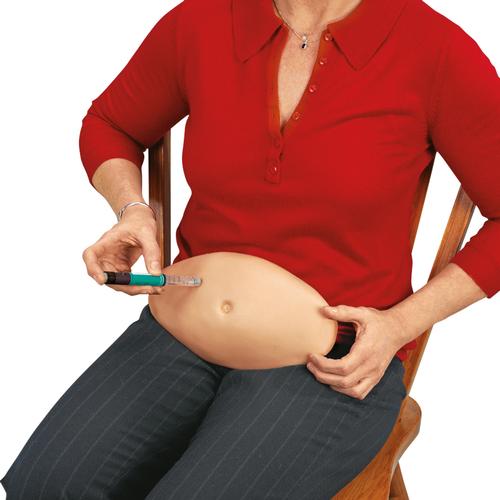Everything that You Should Know About Insulin
Let’s talk insulin.
Mention the “I word” to a low carbohydrate dieter, or perhaps a clean eater, and you may virtually obtain them turn white because blood drains off their face in abject horror.
To them, insulin is the big bad guy inside the nutrition world.
They talk about insulin as “the storage hormone” and believe any amount of insulin in the body will immediately make you lay out new fat cells, put on pounds, and lose any amount of leanness and definition.
Fortunately, that’s not quite the situation.
Actually, while simplifying things with regards to nutrition and training is often beneficial, it is a gross over-simplification of the role of insulin in the human body, as well as the the fact is entirely different.
Far from is the dietary devil, insulin is really absolutely nothing to forget of in any respect.
What Insulin Does
The first part of the insulin worrier’s claim (that insulin can be a storage hormone) holds true Body of insulin’s main roles is always to shuttle carbohydrate that you eat around the body, and deposit it where it’s needed.
I am not saying that most the carbs you consume are turned into fat though.
You store glycogen (carbohydrate) with your liver, the muscles cells and your fat cells, and it’ll only get shoved into those pesky adipose sites (fat tissue) once the muscles and liver are full.
Additionally, unless you are in a calorie surplus, simply cannot store unwanted fat.
Look at it using this method –
Insulin is a lot like the workers in the warehouse.
Calories include the boxes and crates.
You may fill that warehouse fit to burst with workers (insulin) but if there isn’t any boxes (calories) to stack, those shelves won’t get filled.
So if you’re burning 3,000 calories daily, and eating 2,500 calories (or even 2,999) the body can’t store fat. No matter whether those calories originate from carbs or sugar, you simply won’t store them, as your body demands them for fuel.
Granted, this couldn’t survive our planet’s healthiest diet, speculate far as science is concerned, it comes down to calories in versus calories out, NOT insulin.
It is not just Carbs
People fret over carbs having the biggest impact on levels of insulin, and how carbohydrate (particularly of the simple/ high-sugar/ high-GI variety) spikes insulin levels, but lots of other foods raise insulin too.
Whey protein concentrate, for instance, is especially insulogenic, and may cause a spike, specially when consumed post workout.

Dairy products too may relatively large effect due to natural sugars they contain, as well as fats can raise insulin levels.
Additionally, the insulin effect is drastically lowered when you eat an assorted meal – i.e. the one that contains carbs plus protein and/ or fat.
This slows the digestion and also the absorption of the carbs, leading to a lot lower insulin response. Add fibre into the mix too, and the raise in insulin is minimal, so regardless of whether we were worried about it before, the perfect solution is straightforward – eat balanced, nutrient-dense meals, and also you need not worry.
Insulin Builds Muscle
Returning to the concept of insulin like a storage hormone, and the notion who’s delivers “stuff” to cells:
Fancy choosing a guess at what else it delivers, beside carbohydrate?
It delivers nutrients on your muscle cells.
Therefore, if you’re forever trying to keep insulin levels low for nervous about extra weight, it’s highly unlikely you’ll get buff optimally. It’s for that reason that I’d never put clients looking to get ripped and earn lean gains on a low-carb diet.
No Insulin Can Still Equal Fat cell function
Contrary to all those low-carb diet practitioners again, it is possible to store fat when insulin levels are low.
Dietary fat when consumed in the caloric surplus is actually changed into unwanted fat tissue a lot more readily than carbohydrates are, showing once again, fat gain or fat reduction relies on calories in versus calories out, not insulin levels.
Why low-Carb (and Low-Insulin) Diets “Work”
Many folk points for the scientific and anecdotal proof of low-carb diets doing its job reasoning for keeping insulin levels low.
I will not argue – a low-carb diet, where insulin release is kept down are able to work, however this has very little regarding the hormone itself.
Once you cut carbs, you generally cut calories, putting you right into a deficit.
Additionally, an average joe will eat more protein and much more vegetables when going low-carb, so that they feel far fuller and eat less. Plus, protein and fibre have a high thermic effect, meaning they actually use-up more calories in the digestion process.
Important thing: Insulin – Not Bad In fact
There’s no need to be worried about insulin should you –
Train hard and often
Eat a balanced macronutrient split (i.e. ample protein and fat, and carbs to accommodate activity levels and personal preference.)
Are relatively lean.
Eat mostly nutrient-dense foods.
Have no issues with diabetes.
You may still store fat with low levels of insulin, and you may burn fat and produce muscle when insulin is found.
Taking a look at insulin in isolation as either “good” or “bad” is a real prime instance of missing the forest to the tress, so take it easy, and let insulin do its thing while you pinpoint the overall dish.
More info about Buy ozempic Australia please visit resource: visit here.